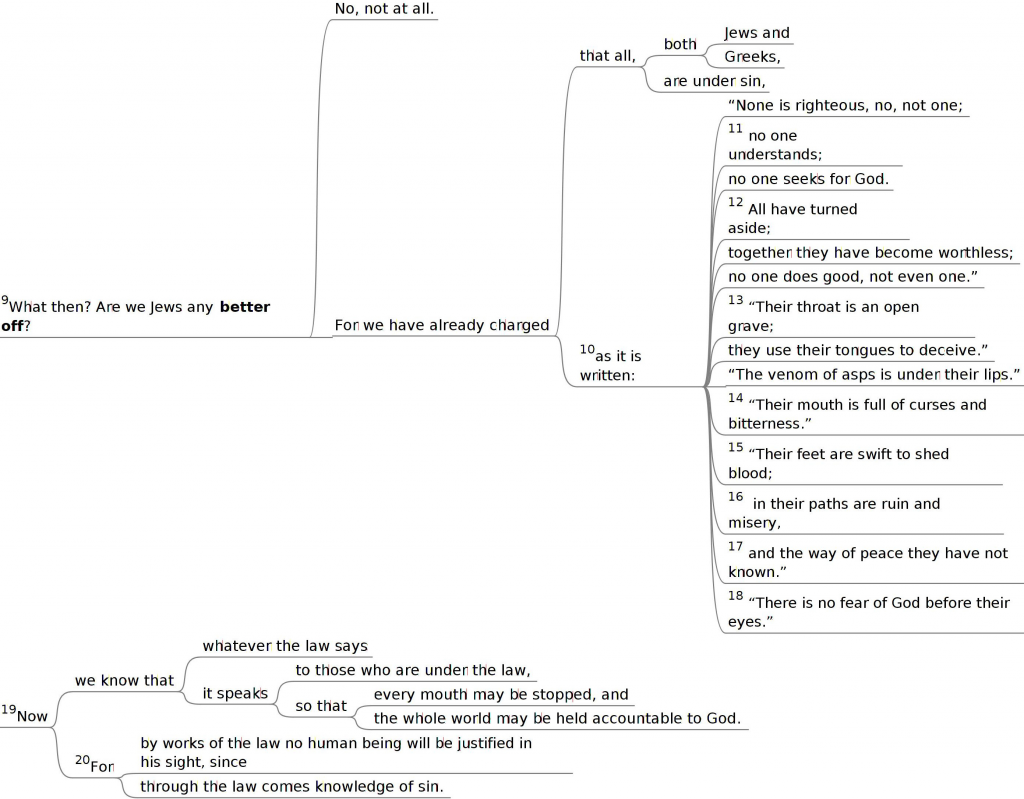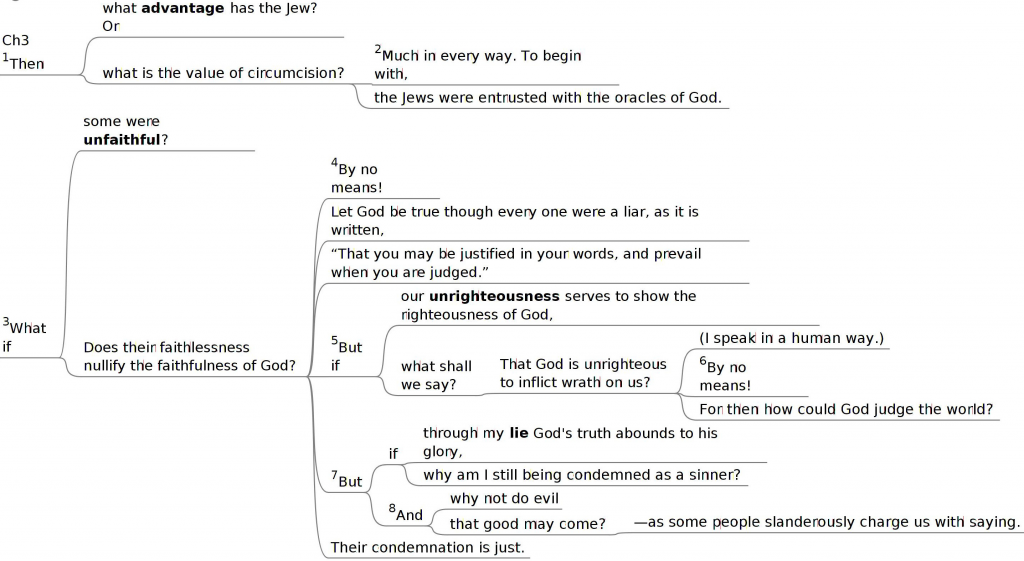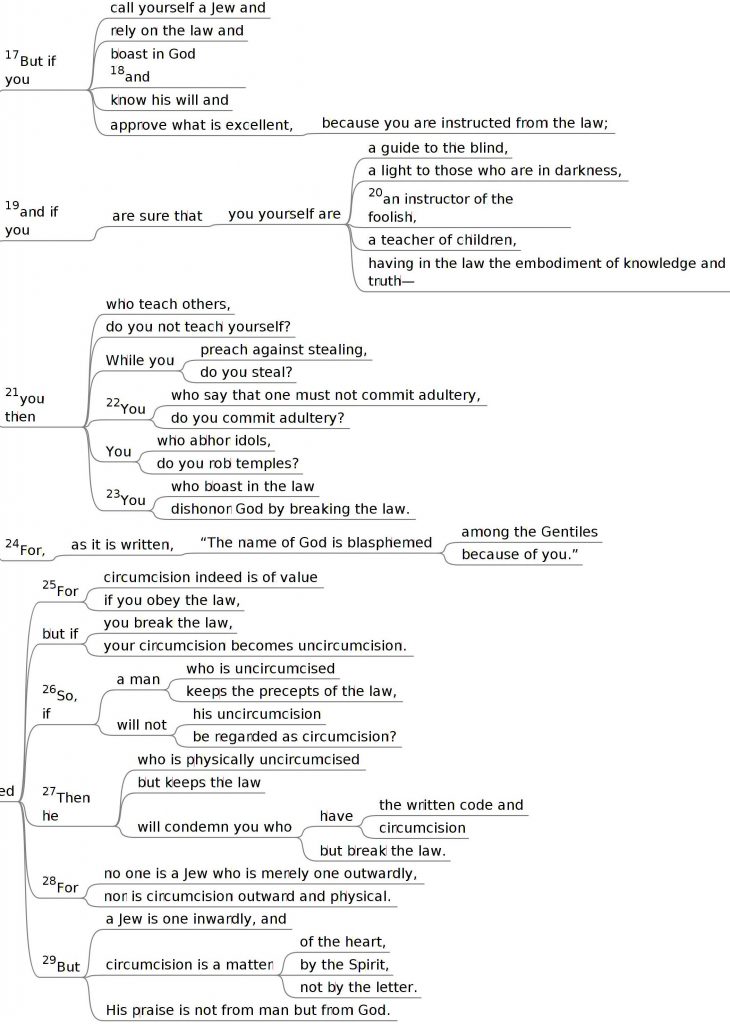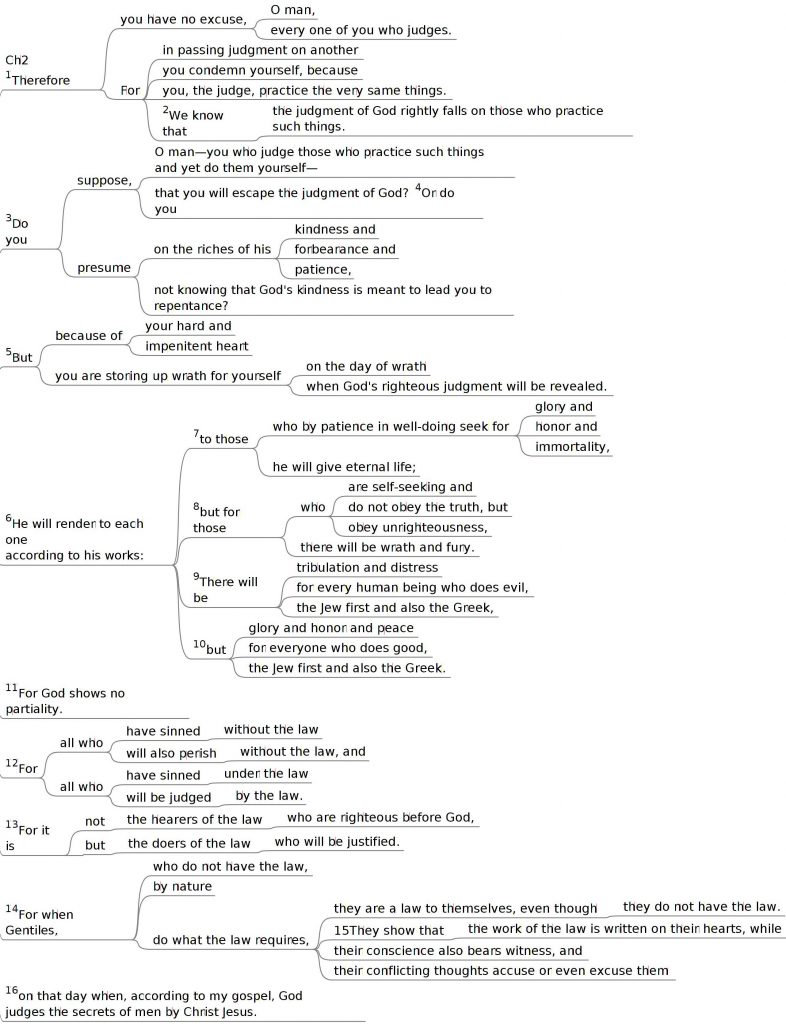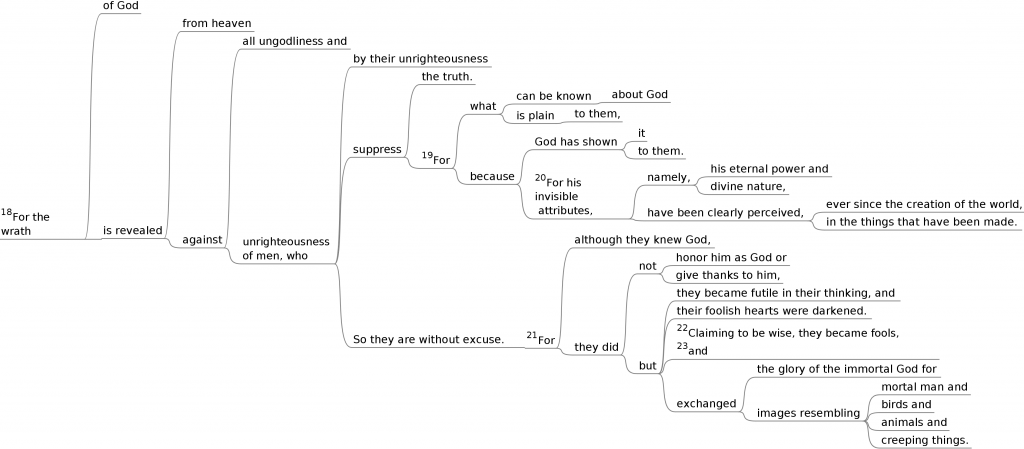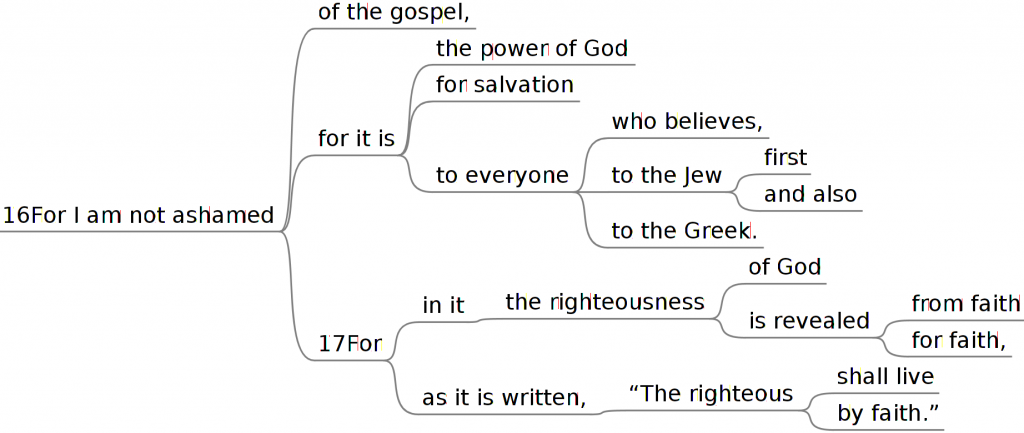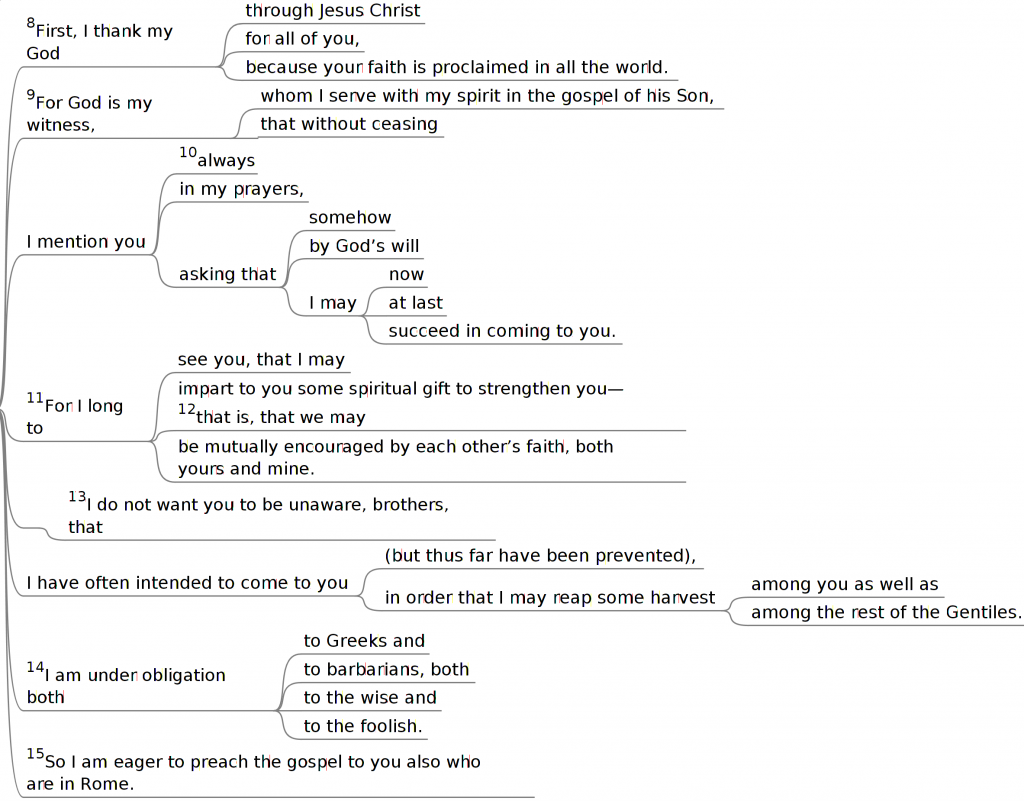This passage begins with something of a break in subject matter, though with a lot of continuity. If Romans 1:18-23 is really best summarized as “they are without excuse” (v20), then this passage can be seen as building on and extending that point with a different audience in focus: “you have no excuse” (2:1). That is, the break is that Paul is addressing a different kind of sin, and a different kind of sinner, but the main point is the same. Just as the immoral pagans had no excuse, the people addressed here also have no excuse.
Also in the opening verse, I find the passing judgment argument interesting, in as much as one’s passing judgment really does imply that one knows the law that one isn’t keeping oneself, making any excuse invalid. This echoes what is said elsewhere is scripture:
Do not speak evil against one another, brothers. The one who speaks against a brother or judges his brother, speaks evil against the law and judges the law. But if you judge the law, you are not a doer of the law but a judge. There is only one lawgiver and judge, he who is able to save and to destroy. But who are you to judge your neighbor? (James 4:11-12 ESV)
So when we put ourselves in the place of a judge over another, we put ourselves in the place of God. But furthermore, as we judge the law, we remove ourselves from being doers –and this is a critical point for Paul in Romans 2:1, too, I think, that judges are not obeying the law themselves.
Furthermore, verse 4 tells us of the kindness of God in holding back his wrath, which is meant to lead us to repentance. This reminds me again of a biblical principle:
The sins of some people are conspicuous, going before them to judgment,
but the sins of others appear later. (1Tim 5:24 ESV)
There is also another Chiasm in these verses, as pointed out in the scrolls, from v6-11:
- A: 6He will render to each one according to his works:
- B: 7to those who by patience in well-doing seek for glory and honor and immortality, he will give eternal life;
- C: 8but for those who are self-seeking and do not obey the truth, but obey unrighteousness, there will be wrath and fury.
- C: 9There will be tribulation and distress for every human being who does evil, the Jew first and also the Greek,
- B: 10but glory and honor and peace for everyone who does good, the Jew first and also the Greek.
- A: 11For God shows no partiality.
As I find true in other kinds of parallelism in scripture, seeing this structure opens up other ways of understanding. For instance, I would not normally see a parallelism between verses six and eleven, though the parallelism between 8-9 is clear, and between 7-10 is also clear (to the point of using “glory” and “honor” in both). Assuming this is right, which looks correct to me, then we must ask in what sense are six and eleven parallel? That is, in what sense does “He will render to each one according to his works” mean something like “For God shows no partiality”?
The answer to this question answers another question, which I’ve seen come up a number of times this week, which is, how do we deal with the fact that Paul seems to be teaching works righteousness here? Is God really saying “do the law and be justified”, as v13b seems to be saying? Some say that this is a hypothetical possibility that never happens. I don’t think Paul is being hypothetical here; rather, he is either talking about an increase of righteousness which comes by pursuing the law by faith (as claimed by John Piper), or else he is talking about a righteousness which is complete an accomplished by Christ and no one else (though those who are in Christ will share in it, as we will continue to see).
But if vv6&11 are equivalents, then we have another possibility. We generally think badly of “works” because we see them as a way to seek justification, apart from “faith”. But that is not the opposition in view here, by Paul. He is not opposing works with faith, but rather with partiality, or favoritism. That is, while Paul elsewhere says you are not justified by your works, but rather by faith, here he is saying you are not justified by favoritism, but rather by your works. He is not making the argument that we can be acquitted by our works, but rather that when we meet our judge, he won’t just let us off because we have the right lineage. God is not partial. Rather, he will look at our works, and judge us justly. Now as I see it, there is no conflict there with justification by faith alone, because anyone who honestly looks at his works, when told that they will be the basis of his judgement, should fall on the floor and cry “mercy!”.
So it is “the doers of the law who will be justified” (v13b), but anyone with a clear view of himself will know that doesn’t apply to him. I am not a doer of the law, but a judge of it (2:1, James 4:11-12). I like to apply the law to others, rather than do it myself. And even where I want to do it myself, I fail. So any honest take on myself should tell me that either I trust the only one who really has done the law, and receive his mercy, or else there is no hope to be justified for me.
Fortunately, this is precisely what Jesus offers us. He has accomplished the law for us, and offers to pay for our sins, and provide us a righteousness which is not tied to our works, but which does nonetheless impact our works, and bring us slowly by slowly more in line with his own obedience.
But we won’t do that, so long as we hold on to the vain hope that our decency, or our lineage, or our club or church memberships, or anything else, will give us an in with the judge. If we think we can bribe the judge to provoke favoritism toward us, why would we ever give up on our works and trust Christ?
Finally, I think it is interesting that there is little in this text to state the ethnic group Paul is addressing here. I have long thought this passage was addressing Jews, but I was challenged this weekend to reconsider, and I think it is better to look at this section as being toward moral, or decent, people, of whatever ethnic group. Maybe they are Jews, maybe they are Gentile pagans. Whatever their ethnicity, they keep their lawns well manicured, and don’t get drunk or sleep around. But while they are not the hedonistic pagans described in 1:18-32, nor clearly the Law depending Jews of 2:17ff, these decent people also need Christ, and cannot count on their decency to save them, whether that decency is derived from Abraham or Greek or Roman civics. We all need Jesus; there is no excuse for any of us.
